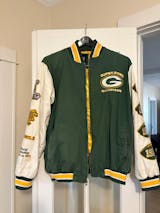For decades, vinegar has enjoyed a reputation as the natural miracle cleaner. You’ve seen the tips: wipe down your counters, add it to the laundry, spray it on the windows. At Humble Suds, we’re pro safe, effective, joyful cleaning which means looking beyond old myths and focusing on what truly works.
Myth 1: Vinegar is a Natural Disinfectant
The truth: Most household vinegar is about 5% acetic acid, too diluted to kill common household germs in a meaningful way. Effective disinfection would require much higher concentrations that aren’t safe for home use.
Myth 2: Vinegar is Safe on All Surfaces
- Can etch and dull natural stone (granite, marble, quartzite)
- May degrade hardwood finishes
- Can pit stainless steel and corrode grout
- Can wear down rubber gaskets in appliances over time
Myth 3: Vinegar Leaves Things Fresh and Clean
Vinegar’s sour scent lingers, and because it lacks surfactants, it can leave a film that attracts dust, making surfaces look dull again faster.
Myth 4: Vinegar is a Fabric Softener
Vinegar doesn’t soften fabric; it can help rinse away detergent residue, which may make fabric feel a bit softer by comparison. It doesn’t reduce static, may fade dark colors over time, and can be hard on machine seals.
Myth 5: Vinegar Can Replace All Your Cleaners
Vinegar is a one-trick tool: it dissolves mineral deposits. For most other jobs, it’s underpowered or risky for finishes.
- Soap + water: everyday messes and germ reduction
- Scouring paste: stubborn grime and grease
- Citric acid: superior descaling with less odor
- Plant-based all-purpose: broad, surface-safe cleaning
When Vinegar Can Be Useful
- Descaling a coffee maker or kettle
- Soaking a mineral-clogged showerhead
- Removing hard water film from glassware
Rinse thoroughly after use.
Smarter, Safer Alternatives
Choose products that use plant-based surfactants, are pH-balanced for surface safety, and leave a fresh, clean finish without harsh residues.
Frequently Asked Questions About Cleaning with Vinegar
Does vinegar really disinfect?
Some research shows vinegar (acetic acid) can kill certain germs under controlled conditions, but those tests often use higher concentrations than household vinegar and require long contact times (10–30 minutes or more). Household vinegar is about 5% acetic acid and is not EPA-registered as a disinfectant, so it isn’t considered reliable for everyday disinfection.
Why don’t you recommend vinegar for daily cleaning?
Vinegar can cut through some dirt and mineral buildup, but it doesn’t contain surfactants (the cleaning agents that lift and remove grime). As a result, it can leave a film behind rather than truly cleaning. It’s also not a reliable disinfectant for quick spray-and-wipe routines as effective results in studies usually require higher strengths or long soak times.
There’s also the odor factor: vinegar’s sharp, sour smell tends to linger, which doesn’t leave a space feeling fresh.
For everyday cleaning, soap and water or a well-formulated plant-based cleaner remove dirt, grease, and germs more effectively, protect surfaces, and leave a clean finish.
Does mixing baking soda and vinegar make a better cleaner?
No. Baking soda (a base) and vinegar (an acid) neutralize each other. The fizzing reaction looks dramatic, but it quickly leaves behind mostly water and a bit of salt so you lose the distinct benefits of each ingredient. They’re more effective when used separately for different jobs.
Is vinegar safe for granite and natural stone?
No. Vinegar’s acidity can etch and dull natural stone such as granite, marble, and quartzite. Use a pH-balanced cleaner to protect these surfaces.
Can I use vinegar in my laundry?
Vinegar may help rinse away detergent residue, but it doesn’t actually soften fabric or reduce static. Over time, it can fade dark colors and may be hard on washing-machine seals. A clean-rinsing laundry soap and wool dryer balls are safer, more effective options.
Does vinegar leave a residue?
Often, yes. Because vinegar lacks surfactants, it can leave a film that attracts dust and makes surfaces look dull again more quickly.
When should I use vinegar for cleaning?
- Descaling a coffee maker or kettle
- Soaking a mineral-clogged showerhead
- Removing hard-water film from glassware
Always rinse thoroughly after use.
Is citric acid better than vinegar?
Often, yes. Citric acid is usually more effective for removing hard-water deposits and rust, has less odor, and is gentler on many surfaces than vinegar.
What’s the best natural alternative to vinegar?
Soap and water remain the gold standard for everyday cleaning. For tougher jobs, plant-based, pH-balanced cleaners lift and remove soils effectively while being gentler on surfaces and leaving a clean finish.
Ready to upgrade your routine?
Explore Humble Suds for plant-based, non-toxic cleaners that work hard without the sour side effects.












